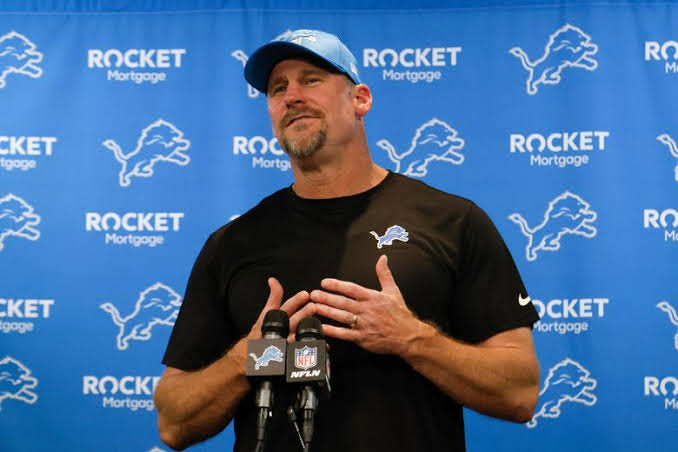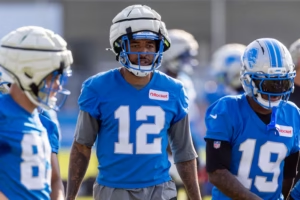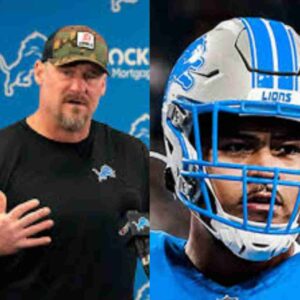
Detroit Lions head coach Dan Campbell recently opened up about a trait that can quickly disqualify an NFL prospect from fitting into the team’s culture.
The Lions’ recent success has been largely driven by smart drafting. Campbell and general manager Brad Holmes have consistently emphasized the importance of finding players who embody the team’s identity—not just those with raw talent. It’s not enough to be skilled; a player has to align with the mindset and values the Lions prioritize.
As a former NFL tight end who carved out a 10-year career without gaudy stats—just 91 catches to his name—Campbell thrived through grit and relentless work ethic. That same mentality is now a cornerstone of what he looks for in future players. The Lions’ locker room culture revolves around competing daily and earning every opportunity, rather than expecting anything to be handed over.
The college football landscape has evolved significantly with the rise of Name, Image, and Likeness (NIL) deals and the increased use of the transfer portal. Many college athletes are now financially secure before ever playing a down in the NFL, and some frequently switch schools in pursuit of either more playing time or better endorsement opportunities.
In a conversation with Texas A&M writer—and former teammate—Billy Liucci on the Liucci Cast, Campbell was asked how the transfer portal has changed the Lions’ evaluation of prospects. The Lions recently drafted three players who had transferred during college: Isaac TeSlaa (from DII to Arkansas), Miles Frazier (FIU to LSU), and Dominic Lovett (Missouri to Georgia).
Campbell clarified that transferring once for legitimate reasons—such as being blocked by elite players at powerhouse programs—is understandable. He cited Jameson Williams, who left Ohio State for Alabama before becoming a first-round pick for Detroit, as a prime example.
However, Campbell drew a line when it comes to players who bounce from school to school. He views repeated transfers, especially without clear justification, as a lack of competitive toughness.
He explained: “If someone keeps transferring because things aren’t going their way—first it’s ‘I’m not starting,’ then it’s ‘this place isn’t working,’ and then they’re gone again—that tells us they’re afraid of competition. We typically just remove those players from our draft board.”
While Campbell acknowledged the need to evaluate each case individually in today’s shifting college football world, his general stance is firm: frequent transfers without good reason signal the wrong mindset, and that doesn’t fly in Detroit’s system.







